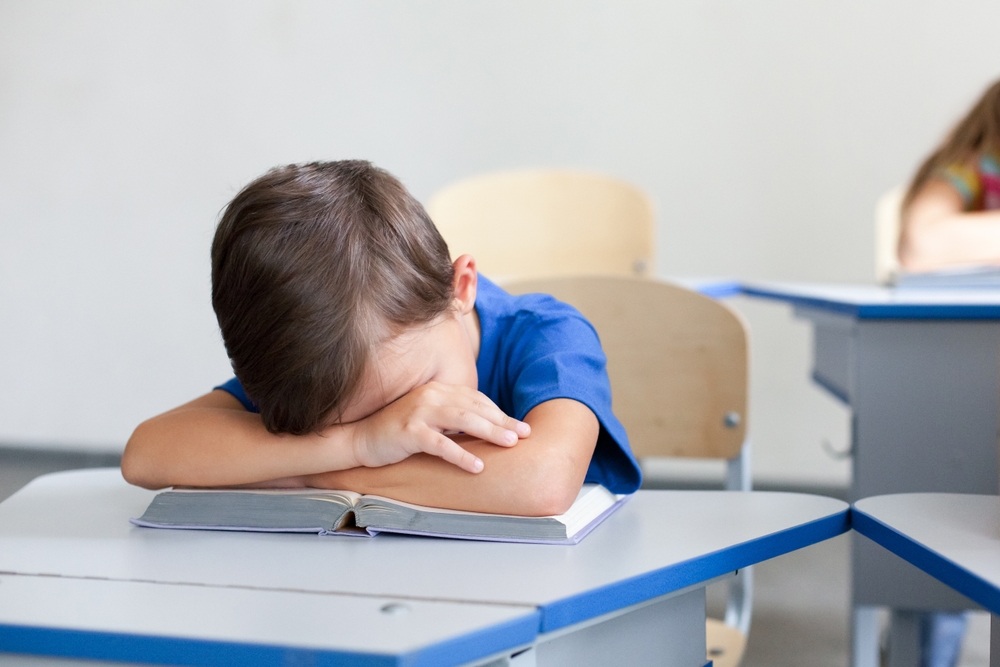The Importance of Sleep for Children and Teenagers
Sleep Awareness Week: March 9-15
 In today’s fast-paced world, sleep is often overlooked, yet it plays a critical role in a child’s health, development and overall well-being. Many children and teenagers do not get enough sleep, leading to problems in school, physical health issues and behavioral concerns. As we recognize Sleep Awareness Week from March 9-15, let’s explore why sleep is essential for young people and how we can help them get the rest they need.
In today’s fast-paced world, sleep is often overlooked, yet it plays a critical role in a child’s health, development and overall well-being. Many children and teenagers do not get enough sleep, leading to problems in school, physical health issues and behavioral concerns. As we recognize Sleep Awareness Week from March 9-15, let’s explore why sleep is essential for young people and how we can help them get the rest they need.
How Much Sleep Do Kids and Teens Need?
The American Academy of Sleep Medicine provides the following sleep guidelines:
- Infants (4-12 months): 12-16 hours (including naps)
- Toddlers (1-2 years): 11-14 hours (including naps)
- Preschoolers (3-5 years): 10-13 hours (including naps)
- School-age children (6-12 years): 9-11 hours
- Teenagers (13-18 years): 8-10 hours
Unfortunately, studies show that many school-age children and teens fall short of these recommendations, leading to significant consequences.
The Impact of Sleep Deprivation
When children and teens do not get enough sleep, it can negatively impact their daily lives in multiple ways:
- 1. Falling Asleep at School – Lack of sleep makes it difficult to concentrate, retain information and stay alert in class. This can lead to poor academic performance and increased frustration with learning.
- 2. Increased Risk of Health Issues – Chronic sleep deprivation is linked to obesity, weakened immune function, high blood pressure and an increased risk of diabetes.
- 3. Behavioral and Emotional Concerns – Children and teens who don’t get enough sleep may exhibit irritability, mood swings, anxiety and symptoms of depression. They may also struggle with impulse control and decision-making.
- 4. Delayed Growth and Development – Sleep is a crucial time for growth and development as the body releases essential hormones that regulate growth, muscle repair and overall development.
- 5. Higher Risk of Accidents – Teens who drive while drowsy are at a higher risk of car accidents. Additionally, tired children are more prone to injuries due to decreased coordination and slower reaction times.
Tips for Helping Kids and Teens Get More Sleep
- Set a Consistent Sleep Schedule – Encourage a regular bedtime and wake-up time, even on weekends.
- Limit Screen Time Before Bed – Blue light from phones, tablets and TVs can interfere with melatonin production, making it harder to fall asleep.
- Create a Relaxing Bedtime Routine – Reading a book, taking a warm bath or practicing deep breathing can help signal the body that it’s time to rest.
- Encourage Physical Activity – Regular exercise can improve sleep quality, but it’s best to avoid vigorous activities right before bedtime.
- Optimize the Sleep Environment – A cool, dark and quiet room with a comfortable mattress and pillows can improve sleep quality.
Sleep is just as important as nutrition and exercise when it comes to a child’s health. By ensuring children and teenagers get enough rest, we can support their physical growth, cognitive development and emotional well-being. This Sleep Awareness Week, let’s prioritize sleep and help kids build healthy habits that will benefit them for a lifetime. If your child has sleep troubles or sleep disorders, discuss it with your care team at Goldsboro Pediatrics.
Sources:
American Academy of Sleep Medicine
Texas Children’s
Mayo Clinic Health System
Sleep Foundation
Back to Archive
